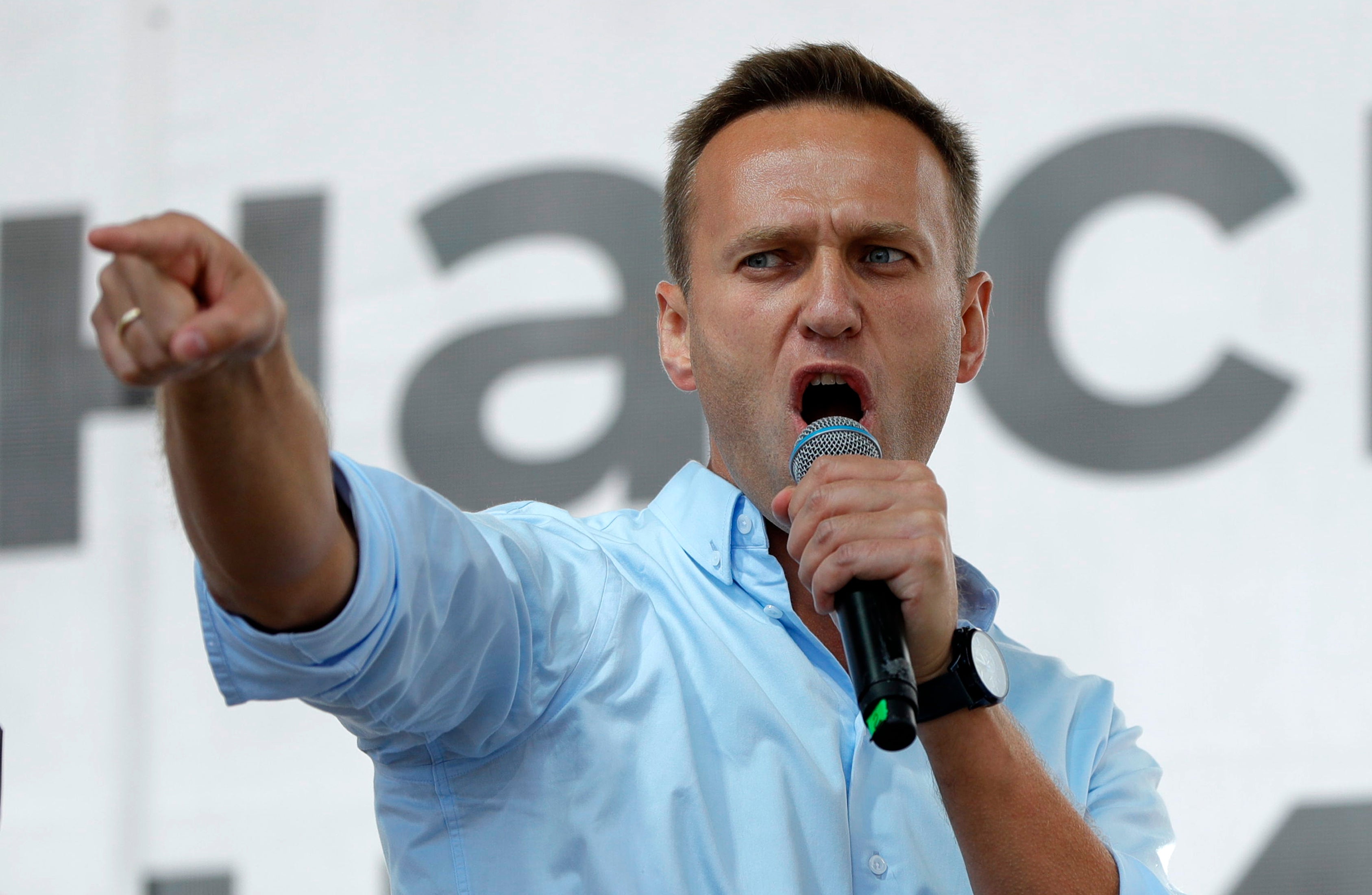Alexei Navalny: Russia tells Kremlin critic he must return home immediately or face jail time
Ultimatum is related to an ongoing three-year suspended sentence

Your support helps us to tell the story
From reproductive rights to climate change to Big Tech, The Independent is on the ground when the story is developing. Whether it's investigating the financials of Elon Musk's pro-Trump PAC or producing our latest documentary, 'The A Word', which shines a light on the American women fighting for reproductive rights, we know how important it is to parse out the facts from the messaging.
At such a critical moment in US history, we need reporters on the ground. Your donation allows us to keep sending journalists to speak to both sides of the story.
The Independent is trusted by Americans across the entire political spectrum. And unlike many other quality news outlets, we choose not to lock Americans out of our reporting and analysis with paywalls. We believe quality journalism should be available to everyone, paid for by those who can afford it.
Your support makes all the difference.Alexei Navalny has been warned that if he does not immediately return home to Russia from Germany, and report to a Moscow office as early as Tuesday morning, he will face serious jail time.
Russia’s Federal Prison Service (FSIN) accused Mr Navalny on Monday of violating the terms of a suspended prison sentence he is still serving out from a 2014 conviction - the service also claims he is evading supervision of Russia’s criminal inspection authority.
Referencing an article in the British medical journal The Lancet about his treatment, the FSIN said Mr Navalny had been discharged from hospital in Berlin on 20 September and that all symptoms of what it called his “illness” had vanished by 12 October.
“Therefore the convicted man is not fulfilling all of the obligations placed on him by the court, and is evading the supervision of the Criminal Inspectorate,” the prison service said.
The critic of Vladimir Putin has been in Germany since he was airlifted there for treatment in August when he collapsed on a plane in what many Western nations believe was an attempt to murder him with a Novichok nerve agent.
Russia has point blank denied any involvement in the incident, and has said there is no evidence to suggest Mr Navalny was poisoned.
The sentence in question is a suspended three-and-a-half-year prison term over a theft case, which Mr Navalny says was politically-motivated. His probation period expires on 30 December.
The prison service said in a statement on Monday evening that it had now summoned Mr Navalny to report to the inspection authority and that his suspended sentence could be changed to a real jail term if his suspected violations of the terms of the suspended sentence were proven to be true.
Mr Navalny soon took to Twitter to post a screenshot of a message to his lawyer, from the FSIN, which said he had until 9am on Tuesday to return to Russia and show up at a Moscow office - or face imprisonment.
Kira Yarmysh, his spokeswoman, said on Twitter it was impossible for Mr Navalny to return in time, that he was still convalescing after his poisoning, and accused the prison service of acting on orders from the Kremlin.
“There’s no way he could appear at the Moscow Criminal Inspectorate tomorrow. But does the FSIN really care about common sense? They were given an order, they are fulfilling it,” she wrote.
The Kremlin has publicly said Mr Navalny is free to return to Russia at any time like any other Russian citizen.
Meanwhile, Mr Navlany used the opportunity to point out the irony that the FSIN appeared to acknowledge that he was in fact poisoned - a point Russia has so far denied - and so asked why no criminal case had yet been launched.
He said on Twitter: “The FSIN, referring to the article in ‘The Lancet’, demands that I be jailed. But, excuse me, an article about how I was poisoned by Novichok. So, at the official level, the state recognised the poisoning. Where is the criminal case?”

Join our commenting forum
Join thought-provoking conversations, follow other Independent readers and see their replies
Comments